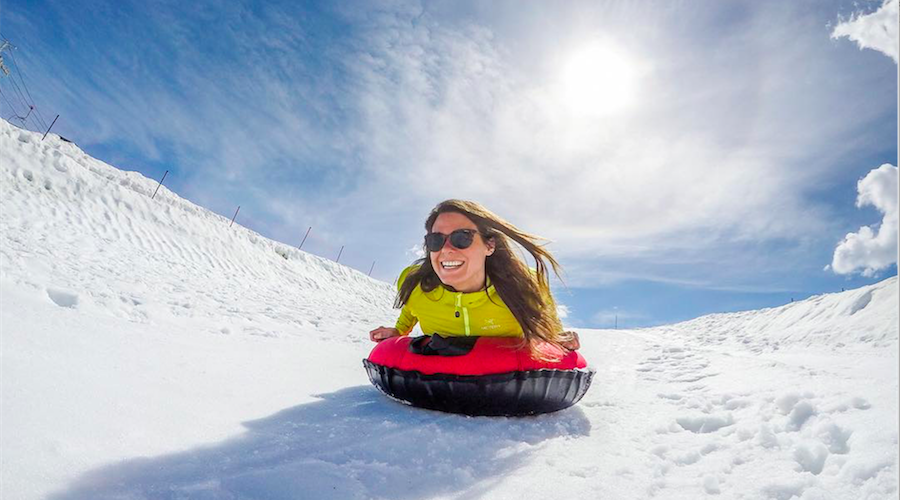Vail Resorts Inc. closed out the winter season with strong third-quarter results as strong visitations to recently acquired Whistler Blackcomb as well as Park City helped offset the impact of weaker snowfall in Colorado.
“We are very pleased with our performance in the quarter and for the entirety of the 2016/2017 North American ski season,” said Rob Katz, CEO, on a conference call with analysts.
Including results from Whistler Blackcomb, which was acquired in October, total lift revenue increased 25.3 percent in the third quarter ended April 30, to $419.6 million. Gains were driven by a 26 percent growth in visitation, partially offset by a 0.5 percent dip in effective ticket price (ETP). The ETP decline was driven by the inclusion of Whistler Blackcomb, which is situated north of Vancouver, because of the erosion of the Canadian dollar. Excluding Whistler Blackcomb, ETP expanded 7.5 percent in the quarter compared to the year-ago period.
“Guest spending continues to be strong, which with the addition of Whistler Blackcomb drove a 23.5 percent increase in ski school revenue, a 28.7 percent increase in food and beverage revenue and a 28.6 percent increase in retail and rental revenue compared to the same period in the prior year,” said Katz.
Results from Whistler Blackcomb were “exceptionally strong” in the quarter due to “excellent conditions throughout the season, a low Canadian dollar versus U.S. dollar exchange rate driving significant destination growth from U.S. and other international guests and the outstanding experience the resort provides,” added Katz. Excluding Whistler Blackcomb operations, total lift revenue grew 5.6 percent.
Park City continued to see the strongest growth among U.S. resorts, driven by growing destination visitation and yield improvements in its second season following its moves to combine Park City and Canyon. The Tahoe resorts benefited from positive weather conditions following storms in January and achieved record revenue levels in all key business lines.
In Colorado, results were in line with last year’s record performance, despite weaker snowfall later in the season.
“Third-quarter U.S. destination visitation to our U.S. resorts remained robust, despite significant growth in the number of U.S. destination visitors going to Whistler Blackcomb,” said Katz. “The strength in U.S. destination visitation to our U.S. resorts was partially offset by a decline in international visitation to our U.S. resorts from both Mexico and Canada, a trend that significantly benefited Whistler Blackcomb.”
Total sales grew 22.7 percent to $794.6 million.
Net income in the quarter rose 14.9 percent to $181.1 million, or $4.40 a share. Included in the latest quarter, on a pre-tax basis, were charges for an increase in the Canyons contingent consideration of $14.5 million, foreign currency losses of $9.1 million on the inter-company loan to Whistler Blackcomb and a future contribution to Town of Vail parking of $4.3 million
Resort Reported EBITDA was $392 million for the quarter, which includes the operations of Whistler Blackcomb and $2.3 million of transaction, transition and integration costs associated with the Whistler Blackcomb and Stowe Mountain Resort acquisitions. Excluding transaction, transition and integration costs and Whistler Blackcomb operations in the latest period and $3.5 million of Lodging Reported EBITDA associated with the termination of the company’s management agreement with respect to the Half Moon Resort in Jamaica in the year-ago third quarter, Resort Reported EBITDA increased 7 percent.
On June 7, Vail Resorts announced the closing of its acquisition of Stowe for approximately $41 million. Stowe will be included on the Epic Pass and other season pass products for the 2017/18 ski season.
Season pass sales for the 2017/18 North American ski season increased approximately 10 percent in units and approximately 16 percent in sales dollars through May 30 versus the same time a year ago. The results include Whistler Blackcomb pass sales at comparable exchange rates in both periods.
“Our spring pass sales included strong growth from our destination guests and particular strength in our Northern California and Pacific Northwest local markets following great conditions in the 2016/2017 ski season and the full inclusion of Whistler Blackcomb on the Epic Pass for next season,” said Katz. “While in the past two years we have seen a material deceleration of our pass sales growth rate from spring results to fall results, we expect the growth rate this year to be more stable between the two time periods.”
Looking ahead, Resort Reported EBITDA is expected to be between $591 million and $600 million for fiscal 2017, which includes approximately $10 million of Whistler Blackcomb transaction and integration expenses, approximately $2.2 million of Stowe transaction and integration expenses, and $3.5 million of expected Stowe operating losses related to the period between closing and the end of the fiscal year. Excluding the expected Stowe operating losses and Stowe transaction and integration expenses, Resort Reported EBITDA is expected to be between $597 million and $606 million for fiscal 2017.
Photo courtesy Whistler Blackcomb
















